World Food Day highlights need for food security
World Food Day, celebrated every year on 16 October, shines the spotlight of awareness on food insecurity. According to a report by The Food and Agricultural Organisation, 800 million people go to bed hungry every night. The number of people facing severe food insecurity has doubled in the past two years. Severe food insecurity means that a person routinely goes for more than a day without eating anything.
What causes food insecurity?
People experience food insecurity when there is insufficient food available – e.g. crops fail owing to drought or flooding. Or when food is available, but people can’t afford to buy it. These two factors often go hand-in-hand. When harvests are poor, prices go up, putting essential food items beyond the reach of lower income families.
Food prices are also adversely affected by conflict and war, when people are displaced and food supply chains interrupted. Recently, we’ve experienced how the war in Ukraine, and sanctions against Russia, have affected the availability of wheat, cooking oil and fuel in our country. In just two months, the price of sunflower oil rose by 50%.
According to the 2022 Global Hunger Index, Africa South of the Sahara and South Asia are the regions with the highest hunger levels.
Food consumption is unequal
Ironically, while millions of people around the world are starving, overweight and obesity rates have increased over the past 30 years. In South Africa 7 in 10 women and 3 in 10 men are overweight or obese. There has also been an alarming increase in the number of overweight children.
Poor food choices – especially consumption of saturated fat and carbohydrates found in fast foods – coupled with a lack of physical activity, are prime causes. Stress, depression and loneliness are also linked to overeating.
The tragedy is that the world – and South Africa – has enough food for everyone. But poverty makes food inaccessible to large numbers of the population.
Unemployment
In South Africa, the official unemployment rate is 34%. However, experts estimate it as closer to 45%, when you include people who have stopped looking for work. Covid-19 shutdowns, business closures and rolling mass blackouts all negatively impact our ability to attract investment, bolster the economy and create jobs.
Malnutrition
Children are among those worst affected by food insecurity. Worldwide 3.5 million children die of malnutrition every year. Those who survive may be stunted, physically and mentally, for life. Undernourished children also have weaker immune systems, making them more susceptible to infections and illnesses.
Elderly people are another vulnerable group. As we age, our bodies aren’t able to process food in the same way. Metabolism slows down and we may not feel hungry. Or we may be sated by small meals. If those ‘meals’ are a slice of bread and a cup of weak, black tea, we’re not getting the essential proteins, vitamins and minerals we need for optimal health.
Elderly people at risk
Pensioners are often forced to spend their limited resources on housing and medication, with little left over for food. Those who can’t afford to buy healthy food like fresh meat, fruit and vegetables are often too proud to ask for help. Frail elderly people don’t have the strength to stand in queues at a soup kitchen. Instead, they skip meals. Other conditions, like depression or bereavement, can also lead to loss of interest in food, and the very real danger of malnutrition.
So what can be done to improve food security in our country?
We need multi-level solutions and strategies to tackle food insecurity. National and local government, the non-profit sector, community based organisations, corporate South Africa and private individuals all need to get involved.
Other developing countries are using a variety of different strategies. Feeding schemes, social grants, work-for-food programmes, food stamps or vouchers, the establishment of urban food gardens and food price controls, all help.
According to research conducted by Professor Dori Posel of the University of KwaZulu-Natal’s School of Development Studies, social grants have alleviated the depth of poverty experienced by the most vulnerable. Food banking is another successful model. Retailers donate items that have passed their ‘best before’ date, but are still safe, to local soup kitchens or shelters that deliver it to people in need.
Although community feeding schemes and services such as Tafta’s meal delivery service are successful in delivering food to elders in need, they are at the mercy of public funding. If donors themselves are struggling, they may give less or nothing at all to non-profits.
What steps can you take?
- Reduce food waste. Don’t buy more fresh produce than you can use before it spoils. When you throw away half a loaf of stale bread or a bunch of bananas that have gone ‘off’, and head back to the supermarket to buy more, you’re driving up demand (and prices). Imagine the impact when thousands of people are doing this.
- If you find you have more food than you can use, donate it to a local food bank, church group or feeding scheme while it is still usable.
- Pay domestic (or small business) workers a living wage.
- Support fresh markets that sell produce – veg and eggs – grown by local farmers or community food gardens.
- If you can afford to, consider adding extra staples (canned fish, rice, maize meal, sugar, etc) to your shopping trolley, and donate it to a feeding scheme, church or charity.
- Consider making a monthly contribution to support Tafta’s meal delivery service.
Food insecurity in South Africa is everyone’s problem. Let’s all work together to ensure that no one has to go to bed hungry tonight. For more information, please email pr@tafta.org.za

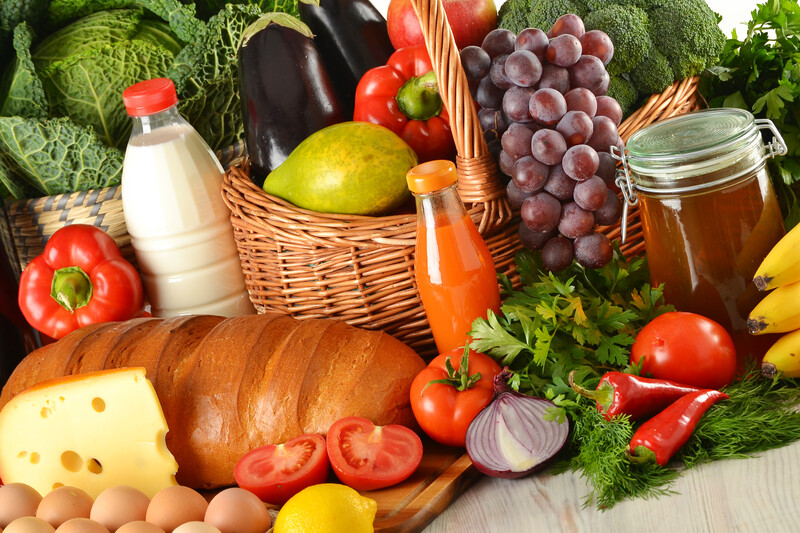

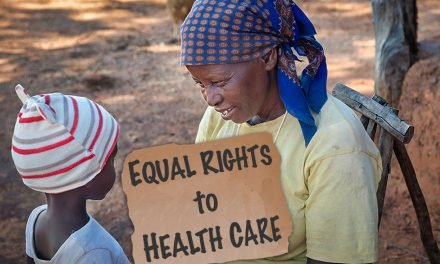


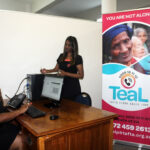 Introducing TEAL – our upgraded national Elder Abuse Helpline
Introducing TEAL – our upgraded national Elder Abuse Helpline Tafta Resident Pens Powerful Tribute to Heritage and Hope in New Book
Tafta Resident Pens Powerful Tribute to Heritage and Hope in New Book Beat the year-end blues – 6 tips for staying positive during ‘silly season’
Beat the year-end blues – 6 tips for staying positive during ‘silly season’ Wisdom on ageing – the most exquisite chapter
Wisdom on ageing – the most exquisite chapter Thriving through 2025 – a toast to life
Thriving through 2025 – a toast to life ‘Human Forever’ inspires Durban audience
‘Human Forever’ inspires Durban audience Celebrating 100 years of life with Mrs Rosemary De Waal
Celebrating 100 years of life with Mrs Rosemary De Waal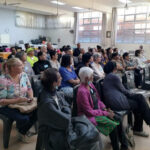 Open Days at Tafta – explore safe and supportive accommodation options.
Open Days at Tafta – explore safe and supportive accommodation options. 67 minutes for 67 years – you helped tick off 67 much-needed items
67 minutes for 67 years – you helped tick off 67 much-needed items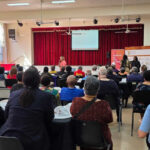 Alzheimer’s Awareness Day – breaking down the stigma
Alzheimer’s Awareness Day – breaking down the stigma